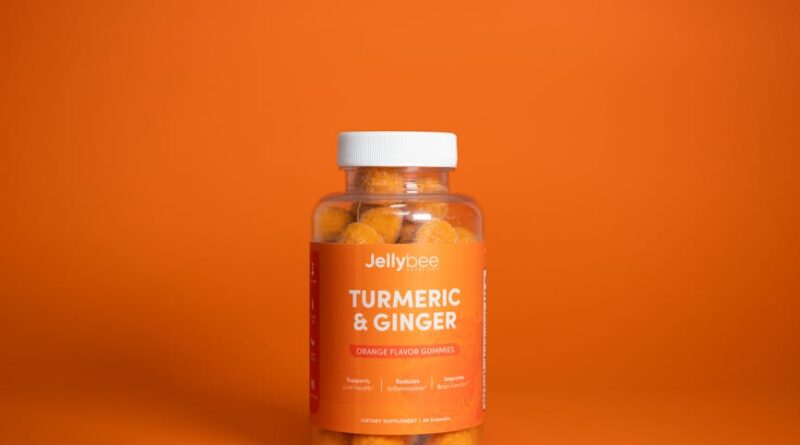Reducing Inflammation Naturally: A Comprehensive Guide
Welcome to a journey towards understanding the intricate world of inflammation and how to naturally reduce it. Inflammation, while a crucial part of the body’s immune response, can become chronic and lead to various health issues if not managed effectively. The good news is that there are natural ways to combat inflammation, from dietary changes to lifestyle modifications. In this article, we will delve deep into the topic of reducing inflammation naturally, exploring different strategies, their benefits, and how you can incorporate them into your daily routine.
The Root of Inflammation

Before we dive into ways to reduce inflammation naturally, let’s first understand what inflammation is and what causes it. Inflammation is the body’s response to injury or infection, characterized by redness, swelling, heat, and pain. It is a necessary process for healing and fighting off pathogens. However, when inflammation becomes chronic, it can contribute to a range of health problems, including heart disease, diabetes, and autoimmune disorders.
Chronic inflammation is often triggered by factors such as poor diet, stress, lack of exercise, and environmental toxins. These factors can disrupt the body’s natural balance, leading to a persistent state of inflammation. Understanding the root causes of inflammation is essential for effectively addressing it through natural means.
Anti-Inflammatory Diet

One of the most powerful ways to reduce inflammation naturally is through diet. Certain foods have been shown to have anti-inflammatory properties, helping to decrease inflammation in the body. Incorporating these foods into your daily meals can have a profound impact on your overall health.
Some key components of an anti-inflammatory diet include:
- Fruits and Vegetables: Rich in antioxidants and phytochemicals, fruits and vegetables help combat inflammation and oxidative stress.
- Healthy Fats: Foods like avocados, nuts, and fatty fish are high in omega-3 fatty acids, which have anti-inflammatory effects.
- Whole Grains: Choosing whole grains over refined grains can help lower inflammation markers in the body.
- Herbs and Spices: Turmeric, ginger, and garlic have been shown to have potent anti-inflammatory properties.
By focusing on whole, nutrient-dense foods and limiting processed and sugary items, you can create a diet that supports a healthy inflammatory response in the body.
Stress Management

Stress is a significant contributor to inflammation, as it can trigger the release of cortisol and other inflammatory molecules in the body. Finding ways to manage stress effectively is crucial for reducing inflammation naturally.
Some stress-reducing techniques that can help include:
- Meditation and Mindfulness: Practices like meditation and mindfulness can help calm the mind and reduce stress levels.
- Exercise: Regular physical activity has been shown to lower inflammation markers in the body and improve overall health.
- Yoga: Yoga combines physical movement with breathwork and meditation, providing a holistic approach to stress reduction.
- Journaling: Writing down your thoughts and feelings can help you process emotions and reduce stress.
By incorporating stress management techniques into your daily routine, you can lower inflammation levels and improve your overall well-being.
Quality Sleep

Sleep is essential for the body to repair and rejuvenate itself. Chronic sleep deprivation can lead to increased inflammation and a weakened immune system. Prioritizing quality sleep is crucial for reducing inflammation naturally.
Some tips for improving sleep quality include:
- Establishing a Bedtime Routine: Creating a consistent bedtime routine can signal to your body that it’s time to wind down and prepare for sleep.
- Avoiding Stimulants: Limiting caffeine and electronic devices before bed can help promote a restful night’s sleep.
- Creating a Sleep-Conducive Environment: Keeping your bedroom dark, cool, and quiet can improve sleep quality.
- Practicing Relaxation Techniques: Techniques like deep breathing and progressive muscle relaxation can help calm the mind and body before sleep.
By prioritizing sleep and creating a conducive environment for rest, you can support your body’s natural healing processes and reduce inflammation levels.
Physical Activity
Exercise is not only beneficial for overall health but also plays a crucial role in reducing inflammation naturally. Regular physical activity can help lower inflammatory markers in the body, improve circulation, and boost the immune system.
Some forms of exercise that are particularly effective at reducing inflammation include:
- Aerobic Exercise: Activities like running, cycling, and swimming can help lower inflammation levels in the body.
- Strength Training: Building muscle through strength training can improve insulin sensitivity and reduce inflammation.
- Yoga and Pilates: These mind-body practices combine movement with breathwork, promoting relaxation and reducing stress-related inflammation.
- HIIT Workouts: High-intensity interval training can help improve cardiovascular health and lower inflammation markers in the body.
By finding an exercise routine that you enjoy and incorporating it into your weekly schedule, you can effectively reduce inflammation and improve your overall health.
Supplements and Herbs
In addition to dietary and lifestyle changes, certain supplements and herbs can help reduce inflammation naturally. These natural remedies can complement your existing regimen and provide additional support for your body’s inflammatory response.
Some supplements and herbs that are known for their anti-inflammatory properties include:
- Fish Oil: Rich in omega-3 fatty acids, fish oil supplements can help reduce inflammation in the body.
- Turmeric: Curcumin, the active compound in turmeric, has potent anti-inflammatory effects.
- Ginger: Ginger has been shown to inhibit inflammatory pathways in the body and reduce oxidative stress.
- Probiotics: Supporting gut health with probiotic supplements can help reduce inflammation and improve immune function.
Before incorporating any supplements or herbs into your routine, it’s important to consult with a healthcare provider to ensure they are safe and appropriate for your individual needs.
Hydration and Detoxification
Hydration and detoxification play a crucial role in reducing inflammation naturally. Staying hydrated helps flush out toxins from the body and supports the proper functioning of organs and systems.
Some tips for staying hydrated and supporting detoxification include:
- Drinking Plenty of Water: Aim to drink at least 8-10 glasses of water per day to stay hydrated and support detoxification.
- Herbal Teas: Herbal teas like dandelion root and milk thistle can support liver detoxification and reduce inflammation.
- Reducing Alcohol and Caffeine: Limiting alcohol and caffeine intake can help protect the liver and reduce inflammation in the body.
- Eating Detoxifying Foods: Foods like leafy greens, cruciferous vegetables, and berries can support the body’s natural detoxification processes.
By prioritizing hydration and supporting your body’s detoxification pathways, you can reduce inflammation and promote overall health and well-being.
Common Misconceptions
There are several misconceptions surrounding inflammation and how to reduce it naturally. One common misconception is that all inflammation is bad, when in reality, acute inflammation is a necessary part of the body’s healing process. It’s chronic inflammation that poses a threat to health and well-being.
Another misconception is that all supplements and herbs are safe for everyone to use. While many natural remedies have anti-inflammatory properties, they may interact with medications or have side effects for certain individuals. It’s essential to consult with a healthcare provider before adding any new supplements or herbs to your regimen.
FAQs
Q: Can reducing inflammation naturally improve my overall health?
A: Yes, reducing inflammation naturally can have a positive impact on your overall health, lowering the risk of chronic diseases and improving your quality of life.
Q: How long does it take to see results from natural inflammation-reducing strategies?
A: The timeline for seeing results from natural inflammation-reducing strategies can vary depending on individual factors such as diet, lifestyle, and overall health. Consistency is key to achieving long-term benefits.
Conclusion
To wrap things up, reducing inflammation naturally is not only possible but also essential for maintaining optimal health and well-being. By incorporating anti-inflammatory foods, stress management techniques, quality sleep, physical activity, supplements, and hydration into your daily routine, you can support your body’s natural healing processes and reduce the risk of chronic diseases associated with inflammation.
Remember that every small step towards reducing inflammation naturally can have a significant impact on your overall health in the long run. Take the time to listen to your body, make informed choices, and prioritize self-care to achieve a healthier and more balanced life.




